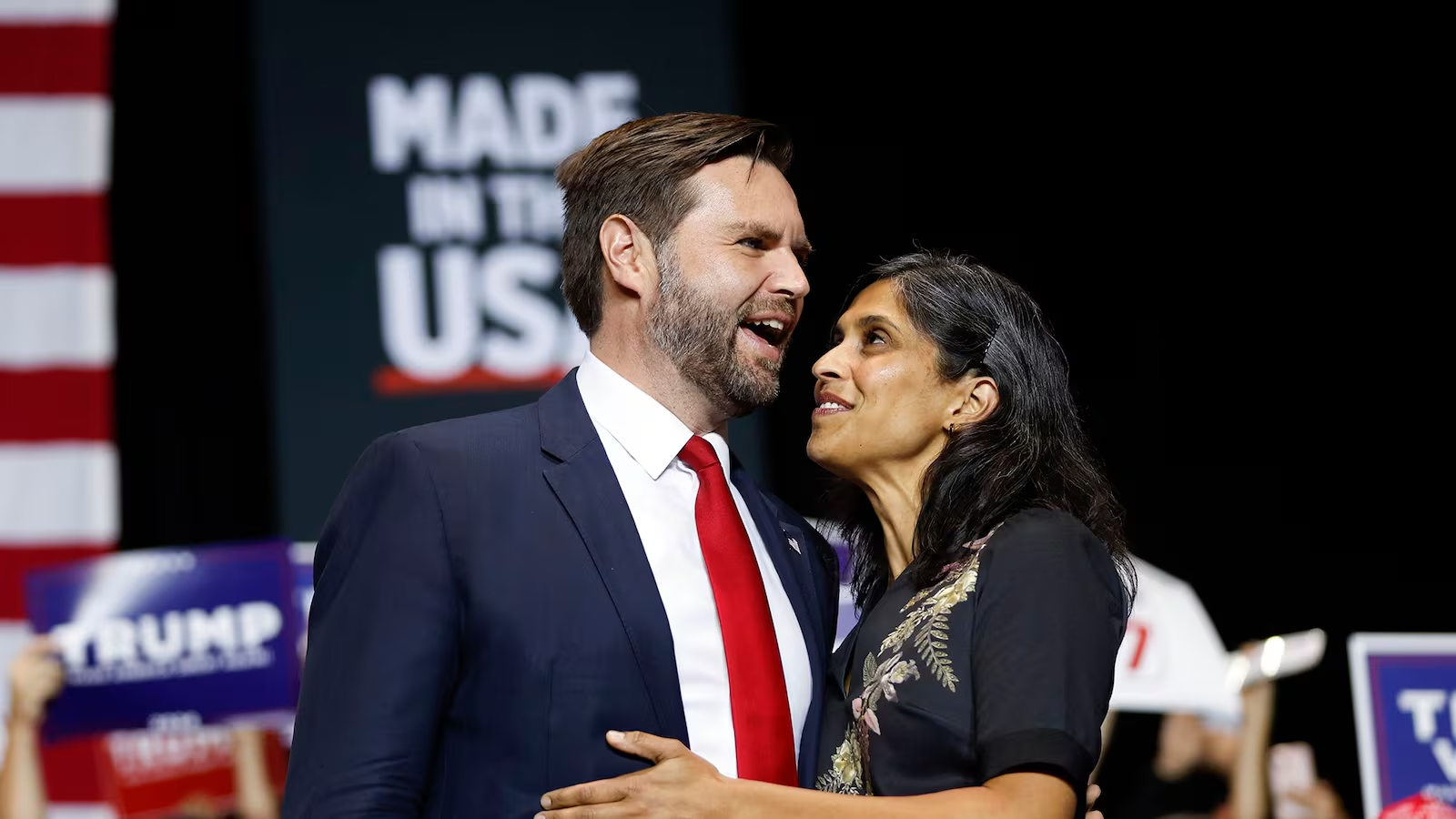US Vice-President JD Vance has ignited a political and cultural firestorm in India and among the global South Asian diaspora after publicly expressing hope that his wife, Usha Vance — who was raised Hindu — might one day embrace Christianity.
Speaking at a Turning Point USA event at the University of Mississippi last month, Vance was asked about Christianity and patriotism. In his response, he reflected on his interfaith marriage and his own conversion to Catholicism in 2019.
“My wife did not grow up Christian. She grew up in a Hindu family,” Vance said. “Do I hope eventually that she is somehow moved by the same thing that I was moved by in church? I honestly do wish that.”
The remark triggered strong reactions, especially in India, where questions around religious conversion — and memories of colonial-era Christian proselytization — remain deeply sensitive.
Growing global backlash
For many Indian commentators, Vance’s words felt dismissive of Hinduism and echoed historic tensions between Hindus and Christian missionary activity.
“It’s ridiculous and absolutely wrong,” said 25-year-old Kush Mehta from Mumbai, stressing that faith must remain a personal choice.
Journalists in India were more pointed. The Hindu’s Areena Arora wrote that when an elected leader treats his faith as “the ultimate ideal for everyone, including his wife,” it becomes political, not personal. CNN-News18 editor Shubhangi Sharma noted Vance seemed to imply Hinduism was “not that Hindu,” a comment she said was troubling amid rising hostility toward immigrants in the US.
Academics echoed those sentiments. Butler University professor Chad Bauman, an expert on Hindu-Christian relations, said Vance’s comment reinforced a common perception among many Hindus: that modern American politics increasingly elevates Christianity over all other religions.
A reminder of colonial history
India’s relationship with religious conversion is complicated by its colonial past, when segments of the population faced forced conversions or aggressive missionary expansion under European rule. That context remains central to why Vance’s comments landed so heavily.
Multiple Indian states today maintain laws restricting religious conversions, and concerns persist about growing hostility toward non-Hindu minorities under the ruling Bharatiya Janata Party.
Clarifications — and further criticism
Amid the controversy, Vance responded on X, insisting that his remarks had been misinterpreted and that his wife “has no plans to convert.” He said he merely expressed what “many people in an interfaith marriage” feel, adding, “Regardless, I’ll continue to love and support her.”
But critics pointed out an apparent contradiction: Vance has previously said Usha’s Hindu upbringing inspired his own return to faith.
Some commentators also accused him of bowing to pressure from the MAGA base as he positions himself for a future presidential run, especially after Donald Trump suggested Vance could be the movement’s heir.
Support for Usha Vance
Even among Vance’s political opponents, there were calls to avoid attacking his family.
California Democratic Rep. Ro Khanna defended Usha Vance, calling her an “accomplished daughter of immigrants” who should not be targeted for her husband’s political choices.
Media personality Meghan McCain, who previously interviewed Usha Vance, described her as a “huge asset” to the Republican Party and praised her as a modern, relatable figure.
A cultural flashpoint with political implications
For many South Asians, Usha Vance’s presence in the White House is a point of pride. But for others, the possibility — however remote — of a high-profile Hindu American converting to Christianity raises fears of erasure and cultural dilution.
“It would create a lot of backlash,” said Vanessa Almeida of Goa, noting that many hope the second lady remains grounded in her heritage.
Across India, the US, and the wider diaspora, the debate continues to grow — revealing just how deeply faith, identity, and politics remain intertwined on the global stage.

